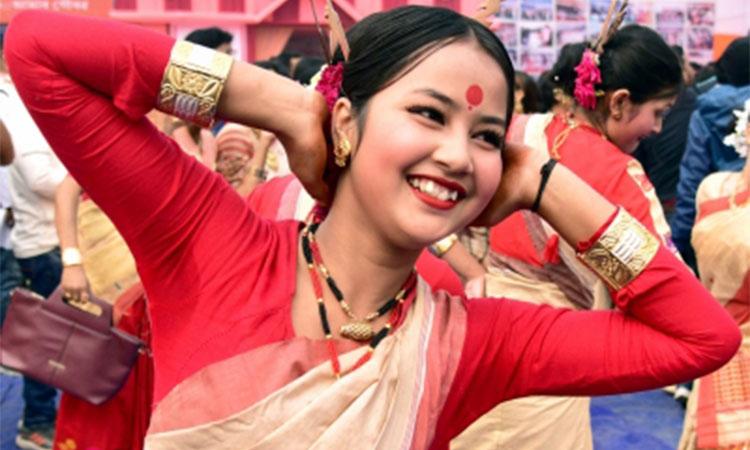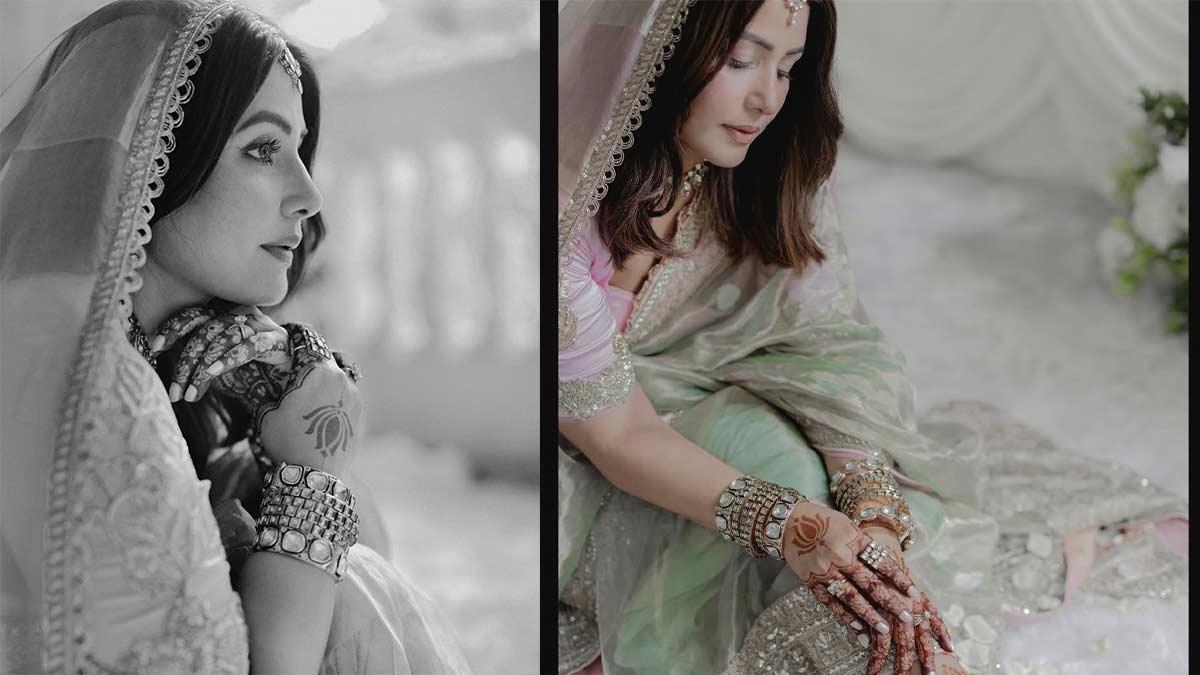Braving the rising temperatures across the northeastern states, people in the region on Saturday celebrated Rongali Bihu and Poila Boishakh with rituals, traditional fervour and enthusiasm.
Lakhs of people including women and children in traditional and new attires took part in the celebrations, especially in the states of Assam and Tripura.
Most parts of the northeast region of India are currently witnessing heatwave-like conditions badly affecting normal life with maximum temperatures in many places hovering between 36 to 40 degrees Celsius, which is above the normal by 5 to 6 degrees.
Rongali or Bohag Bihu is the most important festival in Assam as it marks the beginning of the Assamese New Year.
Also Read | New implantable device shrinks pancreatic tumours
The two other Bihus -- Kongali or Kati and Bhogali or Magh -- are observed in January and October, respectively.
In a historic development, around 11,300 Bihu performers scripted history on Thursday as it entered the Guinness Book of World Records with the largest Bihu performance at a single venue at Guwahati's Sarusajai stadium.
"The record-breaking Bihu performance was aimed to take the famous indigenous cultures to the world arena," Assam Chief Minister Himanta Biswa Sarma Sarma had told the enormous gathering.
Cutting across religious barriers and economic status, people also exchange various sweets and gifts, including the traditional 'Gamosa' (a white piece of cloth with a red border having a customary pattern), with their near and dear ones as a mark of love and New Year celebrations.
Women were seen making various delicious foods, besides 'pithas' (rice cakes) while the markets were flooded with hundreds of traditional and new food items along with clothes to celebrate the festival.
During the past few days, shoppers, especially women, throng the shops and markets to buy their favourite clothes and domestic items to mark the tradition of wearing new clothes on the first day of 'Bohag'.
Meanwhile, Poila Boishakh or Bengali New Year, is also being celebrated along with numerous events including cultural functions in Tripura, Assam, Manipur and other northeastern states.
With new and fresh clothes, men and women visited various temples on the occasion of Poila Boishakh to take blessings of the goddess.
People specially the young men and women exchanging 'Shubho Nobo Borsho' wishes, images, messages, greetings,
status to share on Bengali New Year.
Also Read | Swiping, love and algorithms: The shifting cultural terrain
The Bengali community get together with friends and family to celebrate the New Year with much fanfare.
Poila Boishakh also marks the beginning of the financial year for the Bengali business community.
Traders worship Lord Ganesha and Goddess Lakshmi, and shopkeepers and businessmen invite regular customers to distribute sweets and exchange best wishes.


















